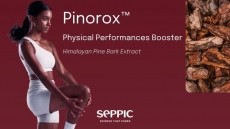Brain hop: Kirin to develop products containing mature hop bitter acids for cognitive benefits

Hops is used as a raw material for beer for more than 1,000 years and have a number of known health benefits including improving sleep and decreasing bone density.
Kirin Holdings together with Dentsu, recently established a joint venture INHOP Co, to tap on new scientific health evidence of Kirin’s mature hop bitter acids.
INCOP business activities will include manufacturing, sales, and branding of matured hop bitter acids, including food and beverage products.
Currently, Kirin’s non-alcoholic beer, Karada Free is the only product containing matured hop bitter acids. “Although the function of matured hop bitter acids (in Karada Free) is for reducing fat, and not for cognitive impairment,” explained Ataka Takashima from the corporate communication at Kirin Holdings.
Dementia impact
Dementia and cognitive impairment are major social issues in Japan, especially where the population is ageing rapidly.
According to Ministry of Health, Labour and Welfare in Japan, the number of dementia patients are expected to increase from 4.3 million in 2023 to 7.3 million by 2025.
The social burden on the country is also expected to rise from JPY 14.5 trillion (US$132 billion) in 2014 to JPY 24 trillion (US$219 billion) in 2060.
Since effective treatment methods after the onset of dementia are insufficient, attention is focused on the lifestyle especially diet.
Kirin’s latest research found that matured hop bitter acids may have beneficial effects on cognitive function, specifically improving memory recall. The firm believes it is the first company to study this relationship on humans.
Kirin had earlier conducted a joint study with the University of Tokyo and Kobe University, finding that matured hop bitter acids had some benefits on improving cognitive function in a mouse model.
Cognition study
The firm proceeded to conduct a randomised double-blind controlled trial on 60 human participants who were between 45 to 64 years.
They were randomly assigned to the treatment group (matured hop bitter acids) or placebo for 12 weeks. Subjects were evaluated for cognitive function using a neuropsychological test at weeks 0, 6, and 12 of the trial.
The test included a verbal fluency test to evaluate memory recall, as well as a daily memory checklist, which is a questionnaire to evaluate forgetfulness.
Researchers found that memory recall was significantly improved in the treatment group compared to the placebo group (p<0.05) from week six.
In addition, the treatment group performed better than the placebo group in the questionnaire, posting better subjective forgetfulness scores. Subjective forgetfulness is when people regard themselves as being forgetful, and previous studies have found that it was associated with a lower quality of life.
These results suggest that matured hop bitter acids may potentially improve cognitive function in healthy middle-aged and elderly people.
Future development
Based on these results, Kirin hopes to contribute to the prevention of dementia and improvement of cognitive function through developing products that contain matured hop-derived bitter acids in the future.
Takashima told us it would not be limited to only food and beverage categories.

















